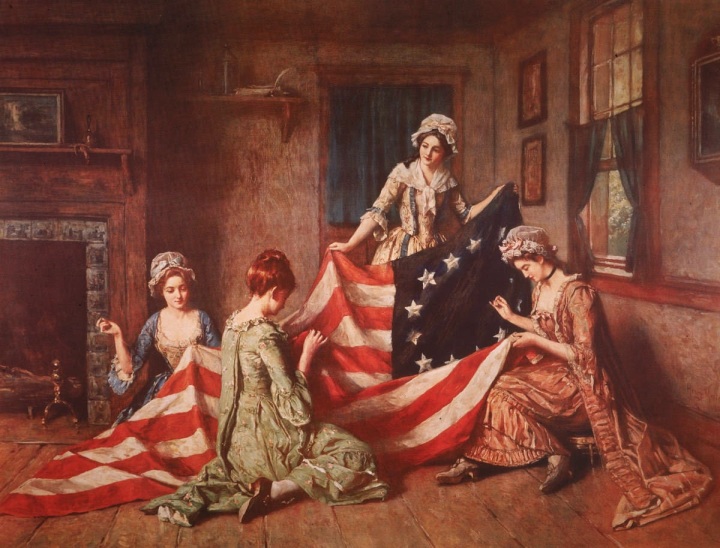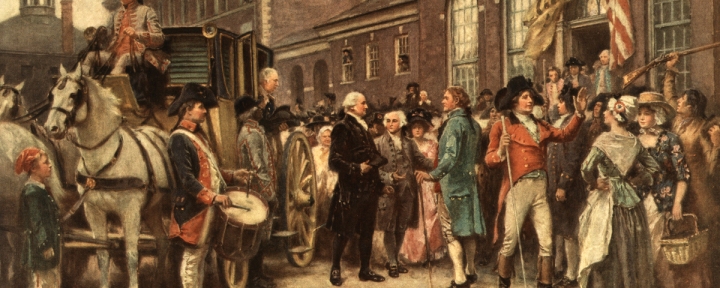…Of Gardeners, Tillers, and Peculiar Farmers: The Restoration of The United States of America (5 minute read)

“A people who cannot think critically are a people who cannot defend their freedoms and liberties.
Civic participation must emphasize: social enterprise application, writing, and public speaking to address social needs & has to be taught in grade school.”
In my essay “The Missing Chapter in Any United States Citizens Manual,” it is stated that two figurative threads have to join, in order to ‘render the professional labor work force most needed in the 21st century.’ The determined educational deliverance of an open-minded, citizenship of critical thinkers and the creation of a 21st century work force led in vision and purpose by social enterprisers, or the practice of social entrepreneurship.
These must thread into a strong rope, operating independently from local and national government involvement, thus becoming localized creators of economy, culture, and social purpose beyond the basic capitalistic focus of making monetary gain as the priority.
The institutionalizing of educational curriculum crafting non-tribal, observant, critical thinkers, who listen, reflect, and problem solve, will lead to a more spirited citizenship of unique individuals participating confidently in the mindful upholding of the American republic and the U.S. Constitution, namely, our two main founding documents, the Bill of Rights and the Declaration of Independence.
But there is a third thread required to make the viable rope of the United States of America determinedly strong, and that is the care taking of community.
The Third Thread
We are now in the eighteenth year of the 21st century. Technology has become a tremendous force in our lives through our use of it, and its application as a form of data-collection and continual surveillance of the citizenry by local and national authorities, and corporate entities. The awareness of the gravity and complexity of this truth changes how we think and behave as individuals and a society, and will continue to be a force of social change, as its data/ surveillance capabilities develop and are finally mainstreamed as normal into the populace.
- How are we supposed to create, sustain and grow community in the 21st century?
- What benefits does strengthening and growing healthy communities have on local, national, and global society?
- What challenges are existent in the development of community?
Enterprising Social Growth
Like social and political scientists
Like firebrands of enthusiasm, with purpose and vision

As resolute individuals with zeal and zest
As critical thinkers wth patience and observation
For calmer hearts and peaceful minds
For the care taking of family and friends
………………….
The concept of ‘community’ is more readily seen with they human eye than described. It is the confluence of people in physical locations with the purpose of sharing space, ideas, activity, and rest. We see community in the central parks in traditional town squares. We see communities of families in playgrounds after school, and organized town functions, as in when we honor our veterans. We see community in assisted living communities for senior citizens, and in artists guilds who share in each others art exhibitions. We see community in the exercise groups that canvas across parks, through small event music concerts that happen from time to time, or the town and school sports functions in our neighborhoods, and we see community in street-block parties, where neighbors relax, close off the street and take time to connect with one another. We see community in gardening enclaves, wherein we work the earth next to each other in the hopes of growing some zucchini and strawberries.
All these situations require physical space stations; they all require the coming together of people, and they all require a willingness to share and partake, even if in silence as we jog past one another, or bring our families to rest for a picnic near each other.
…and yet, “how are we supposed to best create, sustain and grow community in the 21st century?”
Should we expect to find community always, or can we be initiators of it? How challenging is this without access to free communal physical space? Are the options limited according to social function and geographic location? Is it harder to form community in a large city than it is in a rural town? How do we find one another?
Call The Special Teams!
The three threads needed to create the 21st century work force: critical thinkers, social enterprise, and community, root in a social balance perspective that prioritizes people and community over profit, and safeguards these foundations with a confident and well- informed citizenship of individuals forming a peaceful gathering of community ‘gardeners’ who are listeners, observers, and custodial caretakers.
informed citizenship of individuals forming a peaceful gathering of community ‘gardeners’ who are listeners, observers, and custodial caretakers.
 informed citizenship of individuals forming a peaceful gathering of community ‘gardeners’ who are listeners, observers, and custodial caretakers.
informed citizenship of individuals forming a peaceful gathering of community ‘gardeners’ who are listeners, observers, and custodial caretakers.
A smart, savvy community of critical thinkers become as ‘social gardeners.’ But this reality cannot be readily seen in the absence of our educational system not purposing its goals towards the forming of a civically-minded people. We need not all be social entrepreneurs, but we do need to teach civic participation that is individualized and not steered towards participating in government or traditional routes of service. People want to personalize how they serve and this is a motivating factor to any success that can be had therein. Educational policy has to reflect the prioritization of critical thinking that is non-tribal, observant, reflective and analytical in order to create a fulfillment of a deeper aspect of what it means to be an American. Far from any nationalistic purposes, the protection of our freedoms and liberties do not initiate alone with the reality of a physically armed populace, but with the robust practice of intellectual prowess in the citizenry.
Localized social entrepreneurs, for example, operate through the creation of practical local solutions to local social issues. They take it upon themselves to identify social needs and offer solutions, which, if they are ultimately accepted in the community, become economically viable enterprises that continue to function according to their practicality in answering the social needs.
The best examples of social entrepreneurship that can be easily seen are those that are localized, meaning, the solutions to local social needs are offered within those same communities. An enterprise looking to address the empowerment of homeless people in a neighborhood has the prospective to strengthen community by succoring those at the ‘economic bottom.’ Turning these lives around changes the ‘face’ of a community and begins to create a a new positive marker in a community, based on the consistent existence of non-tangibles, such as people who are caring for others, bringing hope to others, working with a social purpose, and moving with earnest enthusiasm towards the success of their project.

Likewise, a social enterprise can be a collective of residents seeking to begin one or a series of gardening farms that have not only individualizes plots of land for these residents to enjoy tilling, but create a program that introduces the benefits and importance of localized farming to new generations of Americans. Such enterprises offer an excellent service to the emotional and mental health of a community.
Creating a website that connects people across greater geographic territories, such as across a county, allows for the scaling of its purpose. Far from creating another personalized social media site to post information on one’s thoughts and one’s personal life, websites that connect communities of engineers, mathematicians, parents, scientists, and those in a professional trade, serve an important purpose, yet the localized benefit of such a aggregation of minds on the internet is ‘softer,’ and though it may lead to localized events, the growth of social community in these instances has a greater propensity to stay fragmented, disparate, and not as active outside of the internet.
Other kinds of social enterprises may work on a national or global scale, offering solutions that impact a greater number of people who are spread out across a number of communities. The appreciative effects of their work are individualized, and may not focus on ‘creating and sustaining community.’ So not all social entrepreneurship organizations grow community, though they may serve real social needs that place people before profit.
A Smart Citizenry of Critical Thinkers
Critical thinkers made proficient since grade school, in the practice of project-based learning that is both multi-academic and social enterprise in focus, are akin to be natural creators of new communities, or repairing, and sustaining communities, with, vision and action. At their best, critical thinkers are excellent examples of American citizens who place the health of the local, and by extension, national, and global community, as an ongoing priority in their lives. Simply put, ‘they care.’

Very obvious examples of Americans who regard civic-duty as integral to their life purpose, include paramedics, police officers, nurses, fire fighters, soldiers, and elected government officials. In the 21st century though, their is a growing number of younger adults whom want to serve their community, yet they want to be creative and unique in how they serve.
- Project-based learning that integrates a social framework bringing solutions to local, national, and global issues, requires a politically scientific analytical mindset, along with the parameters of:
- observation,
- listening,
- deduction,
- inference,
- understanding how governments and people interrelate between each other
- understanding how local, national and global culture is formed and has formed, how it degrades, what leads to its growth, stagnation, or decline
- understanding how political organizations, and news media organizations operate on the local, national, and global level
Such an academic focus sets the conditions for a growing number of the American populace being more inclined to:
- earn a living through the advent of social enterprise
- practice other forms of non-tribal, community-building or enrichening endeavors, such as non-political journalism, art, social-political writing and the creation and playing of live music as a contribution to growing, sustaining, or enlivening community.
- preserve the foundations of freedom and liberty due to the active mindset practice of caring for people through the caring of communities.
Given historicity in project-based mission work that builds and supports new positive dynamics in community through service unto others, critical thinkers who are American citizens would have the awareness and experience needful to practice social enterprise, or at the least, graft in civic care taking in some way, shape, or form. The most successful 21st century work force need not sacrifice the basic capitalism that has been the source of so much economic growth, howbeit, it is apparent that the social fabric that makes for a healthy society will surely see the immediacy in the hybridization of an empathic form of capitalism. One more benefiting to the ‘social gardening’ of the health of a community.
Comments